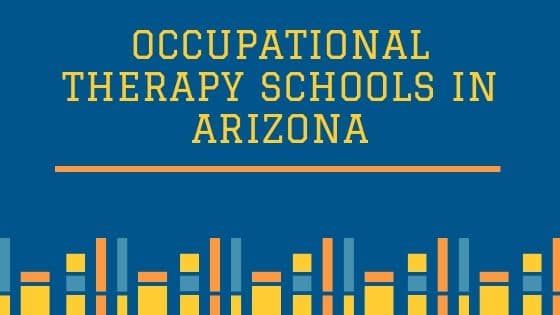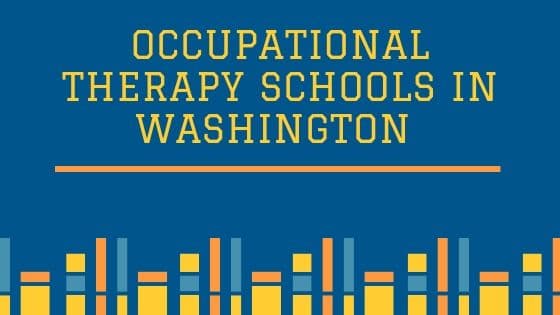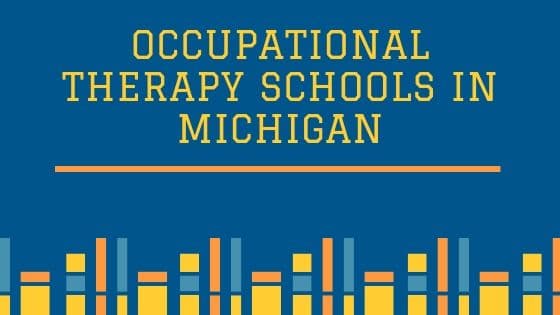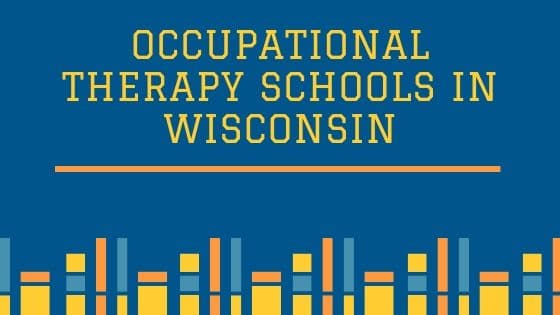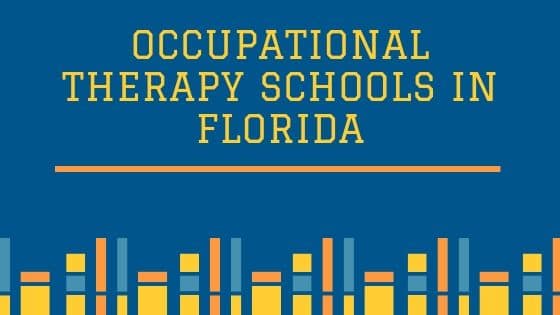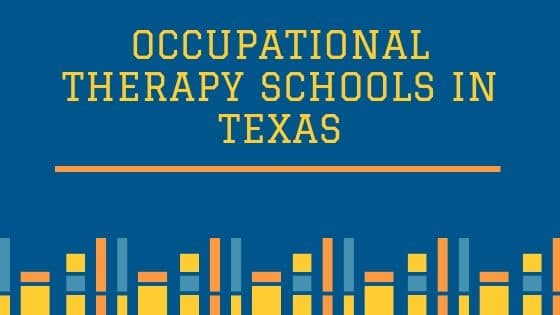Top 7 Occupational Therapy Schools in Arizona
Here are the best Occupational Therapy Schools in Arizona State.
If you’re looking for an occupational therapy school in Arizona, you’re in luck. There are three great schools to choose from, each with its own unique strengths and programs. Read on to learn more about the top three schools in Arizona and what they have to offer students interested in pursuing a career in occupational therapy.
Arizona shares the Four Corners region with Utah to the north, Colorado to the northeast, and New Mexico to the east; its other neighbouring states are Nevada to the northwest, California to the west and the Mexican states of Sonora and Baja California to the south and southwest.
So if you want check OT Schools in neighbouring states then here you go, Best OT Schools in California, Best OT Schools in Nevada .
Best Top 7 Occupational Therapy Schools in Arizona
| No | Name | Degree | Accerditation |
|---|---|---|---|
| 1. | A.T. Still University, Arizona School of Health Sciences | OT Masters | Accreditation |
| 2. | A.T. Still University, Arizona School of Health Sciences | OT Doctorate | Accreditation |
| 3. | Grand Canyon University | OT Doctorate | Applicant |
| 4. | Grand Canyon University | OT Masters | Applicant |
| 5. | Huntington University-Peoria | OT Doctorate | Candidancy |
| 6. | Midwestern University-Glendale Campus | OT Masters | Accreditation |
| 7. | Northern Arizona University | OT Doctorate | Accreditation |
How do I become an occupational therapist in Arizona?
- You must earn a Bachelor or Master’s degree in Occupational Therapy from an American Occupational Therapy Association (AOTA) or the Accreditation Council for Occupational Therapy Education (AOTE) certified school.
- Performed at least 928 hours of occupational therapy work experience.
- Pass a criminal background check.
- Pass the NBCOT OTR examination.
- Provide at least two letters of reference from a supervisor or professor.
- Complete 20 hours of Continuing Education credits during every two year licensure period.
- You can find the application form for the Occupational Therapist here.
A.T. Still University, Arizona School of Health Sciences
| Status | Degrees | Institution Type: |
|---|---|---|
| Accreditation |
| Private Nonprofit |
Master of Science in Occupational Therapy
Occupational Therapy Doctorate – Entry Level
Midwestern University-Glendale Campus
| Program | Master’s |
| Location | Glendale, AZ |
| Duration | 27 months, full-time |
| Intake | August |
| Class Size | 40 |
Northern Arizona University
| Program | Doctor’s |
| Location | Phoenix, AZ 85004 |
| Duration | 33 months, including fieldwork education and the required 16-week individualized residency. |
| Class Size | 45 |
Huntington University-Peoria
Huntington University-Peoria is not accredited and has been granted Candidacy Status.
| Program | Doctor’s |
| Location | 8385 W Mariners Way Peoria, AZ 85382 (480) 939-5074 |
| Duration | The OTD program is a full-time, eight-term program over three years. |
| Class Size | 32 for Spring |
has been granted Candidacy Status by the Accreditation Council for Occupational Therapy Education (ACOTE) of the American Occupational Therapy Association (AOTA),
The OTD program is a full-time, eight-term program over three years.
Huntington University’s rigorous OTD curriculum requires 18 to 19 credit hours per semester. Students should be prepared to designate evenings and weekends to extensive study, reading, and writing.
Classes and fieldwork experiences typically will be held Monday through Friday from 8:00 a.m. to 5:00 p.m.
We annually admit up to 56 students at our Fort Wayne, Indiana, location (22 in the spring cohort and 34 in the fall) and 32 students at our Peoria, Arizona, location, projected for spring 2021.
New fall cohort classes begin each August, and new spring cohort classes begin in late January.
How much does an Occupational Therapist make in Arizona?
The average Occupational Therapist salary in Arizona is $91,381 as of January 27, 2022, but the range typically falls between $83,709 and $99,547. Salary ranges can vary widely depending on the city and many other important factors, including education, certifications, additional skills, the number of years you have spent in your profession.
https://www.salary.com/research/salary/benchmark/occupational-therapist-salary/az
Does the University of Arizona have an OT program?
Yes,
How long does it take to get an OT license in Arizona?
It typically takes between four and six weeks to receive your occupational therapy license in Arizona.
I hope you liked the best Occupational Therapy schools in Arizona. We also provide Occupational Therapy Schools in Arizona. If you find any mistakes in this article, please let me know in the comment section below.
